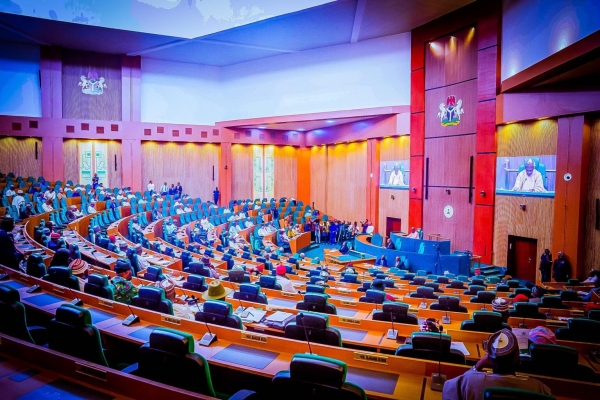The House of Representatives is set to reconvene on Tuesday, September 24, after its annual recess, with a legislative agenda that includes critical discussions on the 2025 Appropriation Bill proposed by President Bola Tinubu, constitutional review, and electoral reforms.
Following a break that commenced on July 23, 2024, lawmakers will return to address pressing national challenges, including insecurity, economic stability, and the ongoing petrol crisis.
In a statement released on Monday, the spokesman for the House of Representatives, Akin Rotimi, indicated that Speaker Tajudeen Abbas will deliver an agenda-setting speech to outline the priorities for the upcoming session.
The statement read in part, “With the 2024 fiscal year coming to a close, the House eagerly anticipates receiving the 2025 Appropriation bill soon. Timely submission from the executive is crucial, as it facilitates thorough scrutiny and public input through town hall meetings, a practice pioneered by the House during the 2024 budget review.
“The House is firmly committed to maintaining the January-December budget cycle and anticipates cooperation from the executive in this regard.
“Honourable members will actively debate and pursue legislative action on pressing challenges faced by Nigerians, particularly those related to the recent flooding in Maiduguri, the spate of insecurity in the country, and the economy. These issues, among others of urgent national importance, will be prioritized as we respond to the needs of our constituencies.”
Rotimi, who represents Ikole/Oye Federal Constituency, Ekiti State, also noted that proposed laws captured in the legislative agenda would be deliberated upon, given their significance to Nigerians’ quest for good governance.
“Bills and motions aligned with our commitments in the legislative agenda will receive prioritisation and fast-tracking, particularly because they will serve as indicators by which Nigerians assess the 10th Assembly at the upcoming mid-term in June 2025,” he added.
The statement further highlighted the importance of amending the 1999 constitution, saying, “The constitutional review process serves as the bedrock of our democracy, embodying our collective aspirations for a just society. The House reaffirms the December 2025 deadline to arrive at definitive outcomes for the Sixth Alteration to the 1999 Constitution (as amended).
“The House Committee on Constitution Review, chaired by the Deputy Speaker, Benjamin Kalu, will intensify efforts to address pressing issues and align our laws with the needs of the public.”
He added that the Committee received “About 305 memoranda from the public and about 150 constitution alteration bills from honourable members, reflecting significant public engagement and concern. These bills will be given accelerated consideration.”
Electoral reform
“Article 6.7 on Law Reform in our Legislative Agenda outlines that the 10th House will prioritise amending the Electoral Act 2022 to address gaps, including vague and contradictory provisions. In line with our agenda, we are also committed to establishing a mechanism for periodic reviews of electoral laws to ensure they remain relevant and aligned with global best practices,” the statement further read.
Local Government Autonomy
“In light of the landmark Supreme Court ruling in July 2024 on local government autonomy, we anticipate bills aimed at ensuring the consequential alignment of various extant laws with this new reality. This issue is pivotal to our Legislative Agenda, particularly Article 6.3 on Law Reform (Agenda 3).
“The 10th Assembly proposed several reforms for Nigeria’s local government councils, including constitutional changes to grant them financial and operational independence. This shift is essential for clearly defining the roles and responsibilities of local governments and preventing overlaps and conflicts.
“Further reforms will address electoral processes within local councils and clarify their roles in maintaining security at the grassroots level. These initiatives are crucial for empowering local governments and ensuring they effectively serve their communities,” Rotimi stated.
Whistleblower Protection Bill
The House, according to the lawmaker, is anticipating an executive bill concerning Whistleblower Protection. “This initiative aligns with our 8-Point Legislative Agenda, particularly aspects focused on strengthening good governance and improving national security,” he said, stressing that “Efforts in this area promise to significantly boost the fight against corruption and improve Nigeria’s revenue streams.
Other areas of interest listed include oversight and legislative compliance, as well as constituency outreach.”


